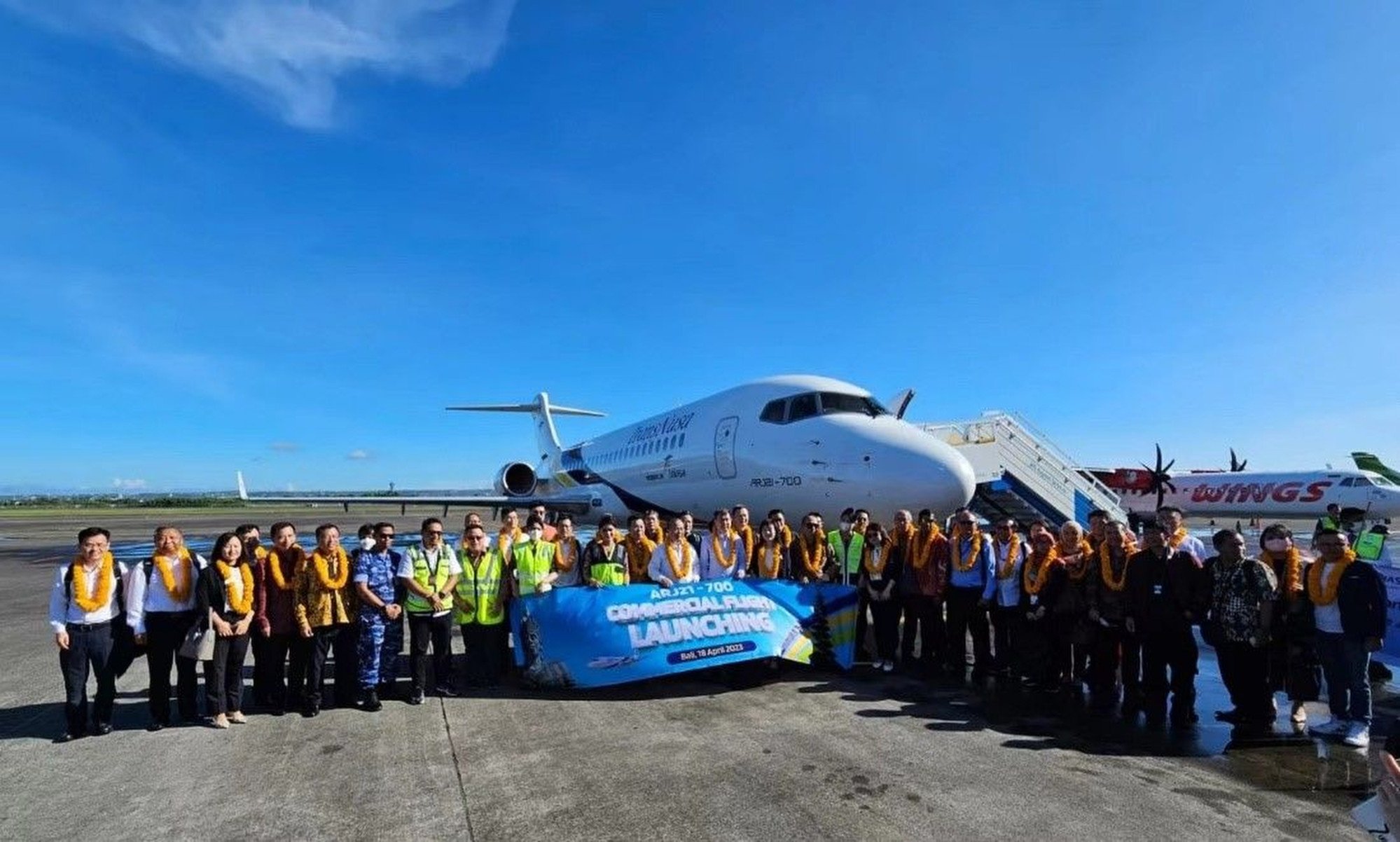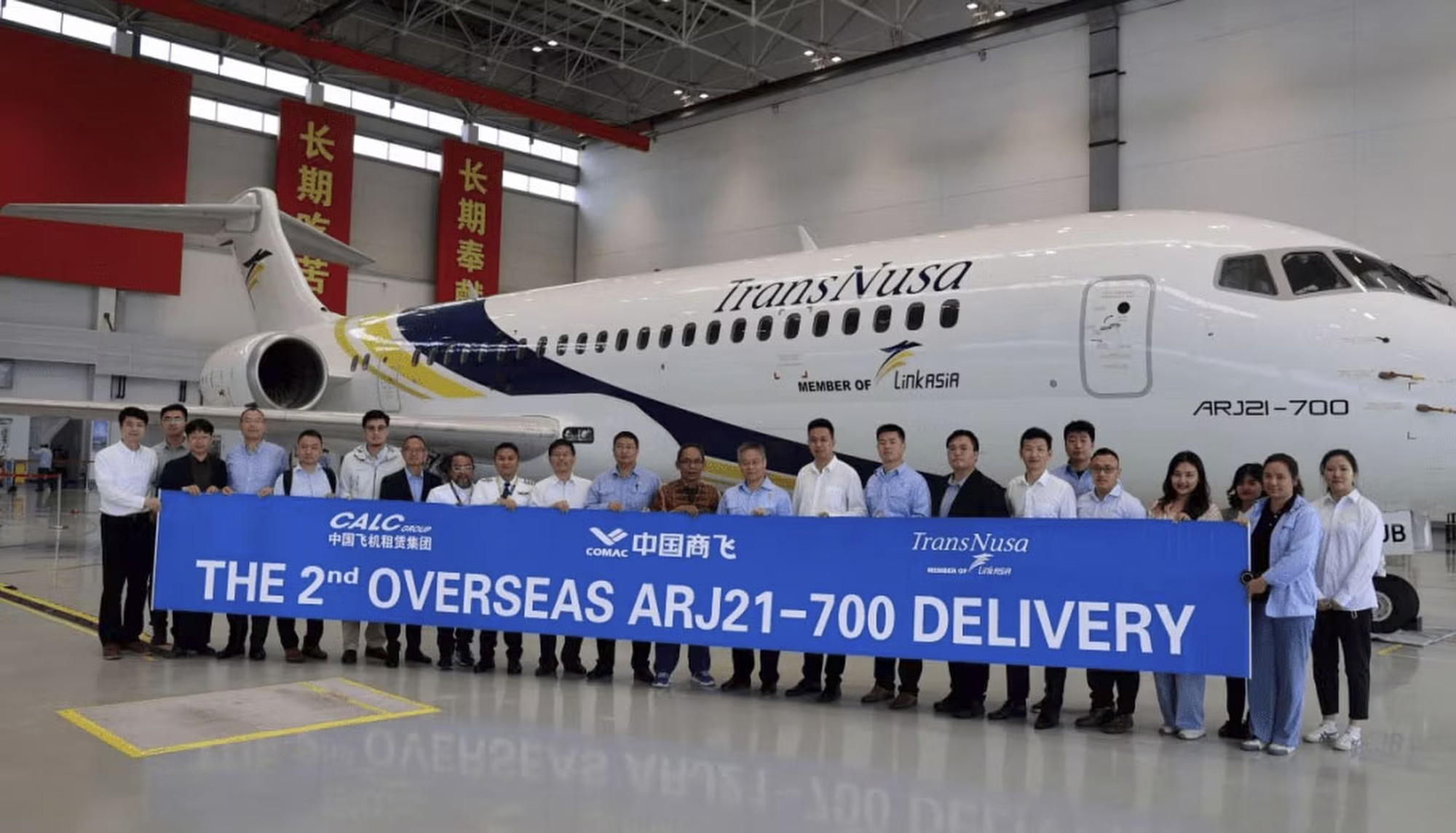For China, its skies are not vast enough to accommodate the ambitions for its home-grown passenger jets.
It wants Chinese jets to spread their wings and go further, but for now, its desire remains aspirational at best, despite having made a small breakthrough in the Southeast Asian region that is seen to offer great potential.
The Commercial Aircraft Corporation of China (Comac) has been flooded with domestic orders for its home-grown narrowbody C919, and while these have shed light on its production capacity, the state-owned manufacturer is already plotting a course for the jet’s overseas expansion to nibble at the duopoly held by Airbus and Boeing.
Do you have questions about the biggest topics and trends from around the world? Get the answers with SCMP Knowledge, our new platform of curated content with explainers, FAQs, analyses and infographics brought to you by our award-winning team.
The harsh reality is that a lack of a crucial certification from aviation regulators in Europe or the United States, as well as widespread geopolitical problems, may threaten to ground Comac’s high hopes for the C919, which is viewed as a potential challenger to the Boeing 737 and Airbus A320 families of aircraft.
But it is Southeast Asia that offers hope, with Jakarta-based airline TransNusa already firmly on the radar, while Brunei and the Middle East are also being explored.
“I expect TransNusa to stay loyal to Comac and it will eventually take the C919, as it needs larger jets to grow and compete effectively,” said Shukor Yusof, founder of Singapore-based aviation consultancy Endau Analytics.
“I wouldn’t be surprised if a firm order is placed within the next two years.”
Comac’s team in Jakarta, which is helping TransNusa train pilots, aims to replicate the success of the two Comac ARJ21 regional jets, which have been criss-crossing the Indonesian archipelago for a year.
A third ARJ-21 also arrived in Jakarta in May and is being primed to start service, with Yusof expecting Comac to offer discounts and incentives as TransNusa nudges closer to more deals as its existing fleet is ageing.
“While they keep buying from Airbus or obtaining second-hand jets from others, it will explore options with Comac regarding the C919,” he added.

Other than the ARJ21, TransNusa’s fleet includes four A320s, which have an average age of 18 years, and it may need to buy new planes to maintain trunk routes from its base in Jakarta to Singapore, Kuala Lumpur and Chinese hubs including Guangzhou.
The China Aircraft Leasing Group, which is under the umbrella of the state-owned financial conglomerate China Everbright Group, is also a stakeholder in TransNusa.
In June, Everbright renewed its own strategic partnership with Comac that had first been agreed in 2018, and the link could play a role in brokering and assisting with future deals.
TransNusa did not respond to Post’s request for comment.
Comac’s Jakarta team, though, is eyeing more than just TransNusa, with a forecast from the Airports Council International predicting Indonesia would be the world’s fourth-largest market by traffic by the 2040s after China, the United States and India.
Indonesia, which is the largest and most populous economy in Southeast Asia, was the world’s 13th-largest aviation market last year and largest within the Association of Southeast Asian Nations bloc.
And although Western endorsement is not a must, as seen in the case of the ARJ21, approval from the authorities in Jakarta is still needed for the C919 to fly in Indonesia, which has built rapport with China on transport and infrastructure cooperation.
It took two years for ARJ21 to be certified in Indonesia, with the inaugural flight from Jakarta to Bali taking place in April 2023.
Comac is also eying Brunei as another launch pad having signed a US$2 billion deal with start-up carrier GallopAir for 30 aircraft, including the C919, in September.
GallopAir, which is owned by China’s Shaanxi-based Tianju Investment Group, hopes to start operations by the end of 2024.

GallopAir CEO Cham Chi said in February, according to Reuters, that the carrier had already applied for certification for the C919 from regulators in Brunei.
“[The opportunity in Southeast Asia] may last for several years, and it’s wise for Comac to pitch the C919 to small carriers that are more nimble to explore new aircraft types,” said Zhang Xin, the Swire professor of aerospace engineering at the Hong Kong University of Science and Technology.
“From trade ties, geographic proximity to market potential, Southeast Asia’s vibrant new carriers tick all the right boxes.”
Zhang said Boeing’s accident-prone 737 series could add to the appeal of the C919, while Airbus is hamstrung by capacity constraints.
“I’d say it's a leg-up for the C919, when the two rivals you strive to take on are marred in woes, and Southeast Asia is seeing a new breed of airlines,” added Zhang, who was formerly the Airbus professor of aircraft engineering and director of the Airbus Noise Technology Centre at the University of Southampton.
The Middle East is also on Comac’s radar, with president He Dongfeng visiting Saudi Arabia in May and holding talks with national carrier Saudia.
“Passengers from Asia and Europe heading for the Arabian Peninsula and Africa may first fly to hubs like Dubai, Doha or Riyadh and then transfer to flights on narrowbodies to reach their final destinations ... It’s another potential market for the C919,” added Zhang.
But other issues may threaten to clip the wings of the C919 as other regions are unlikely to embrace the Chinese jet.
“The geopolitical reality means it will be difficult for the C919 to be certified in Europe or America any time soon,” warned a report by Renmin University’s Economy and Diplomacy Research Institute published in February.
“Other than the West, Japan, South Korea and India are unlikely to open up their skies.”

Nathaniel Sher, a senior researcher at Carnegie China, said Beijing may leverage diplomatic influence and trade ties to entice foreign buyers and that the Civil Aviation Administration of China (CAAC) could form partnerships with its foreign peers as it seeks overseas certification for the C919.
“Several of Comac’s early international customers maintain direct connections to Chinese investors ... and Indonesia certified the ARJ21 with the CAAC’s help,” Sher said.
But he cautioned that supply chain disruptions could influence potential customers due to geopolitical risks.
“It’s among several risks that international customers must consider when deciding whether to buy and operate the C919,” Sher added.
More from South China Morning Post:
- Here are China’s 4 commercial jets, from the ARJ21 and C919 to the jumbo C929 and C939
- Boeing not yet facing clear skies in China even as deliveries resume, executive visits
- C919 production to ‘greatly improve’ as Shanghai eyes R&D, industrial chain uplift
- China’s C919 jet noses closer to European certification as regulators plan visit
- China preps plane research renewal after C919’s first year in the air
For the latest news from the South China Morning Post download our mobile app. Copyright 2024.





